Established in 1990, the current PhD programme in Design aims to develop competences and skills to carry out high quality research in design as a specific field of enquiry.
In this respect, candidates will be invited:
- to reflect on the nature of design, with its aesthetic, performance and meaning values, as well as its capability of being an agent of social change
- to strengthen the disciplinary core of design
- to develop and share knowledge and tools able to distinguish the designer from other figures involved in design activity


